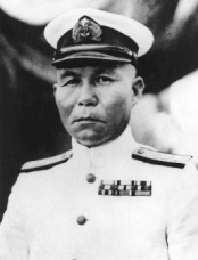in 1940 was transferred from Palestine to lead the Western Desert Force in Egypt; commanded it throughout its successful campaign against the Italians 10th Army between December 1940 and February 1941; was captured on April 6, 1941 by a forward German unit while driving to take control of the British retreat from Cirenaica; held captive in Italy until his escape in December 1943; returned to action as 8th Corps commander during the Allied breakout from Normandy; in January 1945 became C-in-C Eastern Command, India.
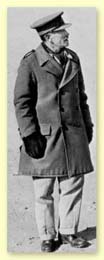
strong advocate of naval air power and Chief of Staff of the Japanese 11th Air Fleet; was responsible, along with Commander Minoru Genda, for the early development of the plans for Adm Yamamoto's attack on Pearl Harbor; in late 1944 was appointed to command the 1st Air Fleet in the Philippines, where he created the Special Attack Groups of suicide dive-bombing pilots known as the Kamikazes; one among thousands of Japanese who regarded surrender as an unacceptable betrayal of Emperor and homeland, committed ritual suicide by sword shortly after the Japanese Emperor Hirohito's surrender speech was broadcast.
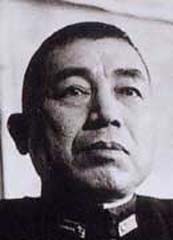
successor to Manuel Quezon as President of the Philippines, took over the office on Quezon's death in 1944; in October, returned to the Philippines from Washington, where he had served under Quezon in the Philippines government-in-exile; was defeated in the first post-war election in April 1946 by Manuel Roxas.
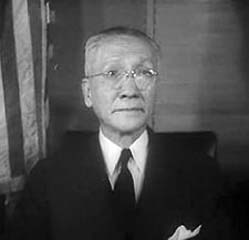
Chief of Staff to Admiral Canaris, head of the Abwehr form 1938 to 1943; his opposition to Nazism had been cemented from the outset when his superior in the Abwehr, general Bredow, became an early victim of the regime in the 1934 Röhm purge; his opposition was underpinned when he was one of those appointed to participate in the shabby maneuvers which resulted in the dismissal of Defense Minister Blomberg and Army C-in-C Fritsch in 1938; following Canaris's appointment as head of Abwehr in 1935, increasingly became a primary focus of Abwehr's varied resistance activities, acting as his superior's 'front man' in recruitment, information collection and dissemination and planning of Hitler's overthrow; in addition sent a series of warnings of Hitler's intentions towards Czechoslovakia, Poland, Denmark, Norway, Belgium and the Netherlands, though these were clearly ignored by their respective governments; worked closely with other opposition members such as Bonhöffer, Müller and Dohnanyi, narrolwly escaping exposure at the time of the latter's arrest in April 1943; was arrested in the aftermath of the July Bomb Plot in 1944 and, like his superior, underwent interrogations and incarceration until April 1945, when he was hanged with Canaris at Flossenbürg concentration camp.
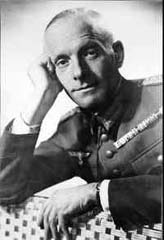
Ex-Tass overseas journalist and Soviet ambassador to Washington, 1939-40, participated in the talks on Allied aid for Russia in Moscow in November 1941, but was significantly lessl popular than London Ambassador Maisky, who had initiated the talks with Harry Hopkins; in 1943 became ambassador to Mexico, and played a part in the establishment of relations between the Soviet Union and several Latin American countries; was killed in an air crash over Mexico City.
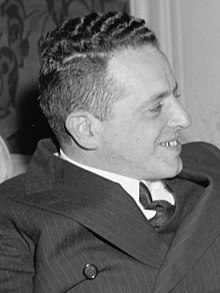
saw his first active fleet command or the war in operations against Indonesia (Dutch East Indies), Malaya and the Philippines; then succeeded Adm Chuichi Nagumo as commander of the 3rd Fleet, comprising most of Japan's carrier force, in November 1942 and participated in the major battles of the Philippine Sea and Leyte Gulf, where Ozawa' decoy maneuvering to draw away Adm Halsey's carrier force nearly cost the Americans a crucial victory; remained in this post until November 1944; in May 1945, was appointed Commander of the Japanese Fleet to replace Adm Toyoda, following the latter's failure to prevent the American capture of Okinawa.
